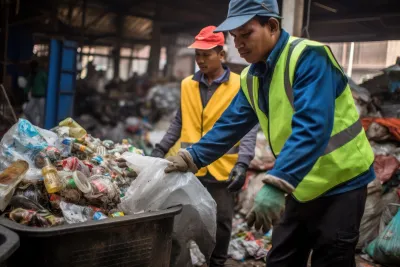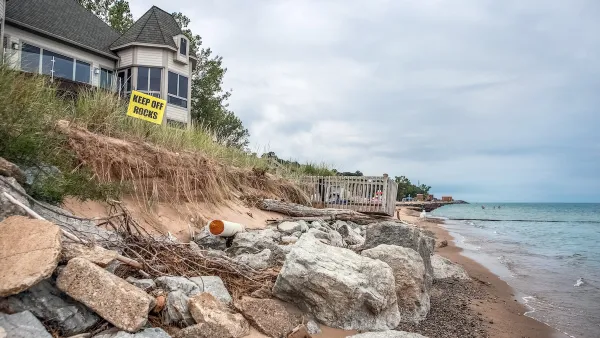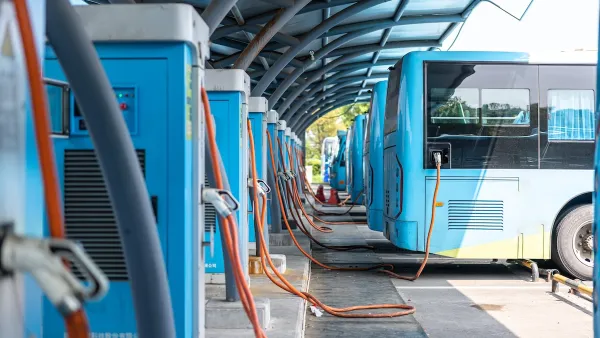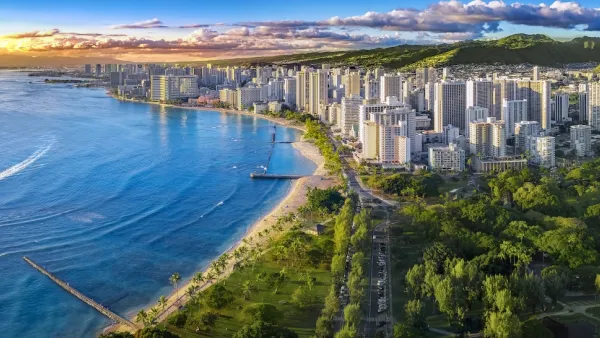Building sustainable, equitable cities of the future, must take into account the important and often overlooked tasks performed by informal workers.

In a blog post for the International Institute for Environment and Development (IIED), Sonia Dias outlines how cities can harness the power of informal workers to build resilience and economic diversity, particularly in countries where informal economies are a thriving part of the local economy. “Recognising street vendors, domestic workers, home-based workers and waste pickers by acknowledging their key role in urban economies and their co-production of urban plans, will help create cleaner, greener, socially responsive, vibrant, and ultimately resilient cities.”
As Dias explains, the Women in Informal Employment: Globalizing and Organizing (WIEGO) research policy network has released a roadmap called Rights to the City that charts a set of principles that “envisions cities with diverse and inclusive economies that ‘safeguard and ensure access to secure livelihoods and decent work for all inhabitants.’”
These principles include “Recognition that most informal activities are legitimate efforts by the urban poor to forge their livelihoods in often hostile policy environments,” “Regulations that enable access to public space and natural resources for informal livelihood activities,” and “Provision of basic infrastructure and transport services in informal settlements and informal workplaces.”
“The ability of cities to withstand shocks and crises is predicated by the ability of communities, informal settlements and different sectors of the economy – including informal ones – to prepare, react, resist and bounce back.” To this end, Dias writes, “Recognition and strengthening of informal economies may be a key way to increase urban resilience.”
FULL STORY: Building resilient cities with the resilience of informal workers

Analysis: Cybertruck Fatality Rate Far Exceeds That of Ford Pinto
The Tesla Cybertruck was recalled seven times last year.

National Parks Layoffs Will Cause Communities to Lose Billions
Thousands of essential park workers were laid off this week, just before the busy spring break season.

Retro-silient?: America’s First “Eco-burb,” The Woodlands Turns 50
A master-planned community north of Houston offers lessons on green infrastructure and resilient design, but falls short of its founder’s lofty affordability and walkability goals.

Test News Post 1
This is a summary

Analysis: Cybertruck Fatality Rate Far Exceeds That of Ford Pinto
The Tesla Cybertruck was recalled seven times last year.

Test News Headline 46
Test for the image on the front page.
Urban Design for Planners 1: Software Tools
This six-course series explores essential urban design concepts using open source software and equips planners with the tools they need to participate fully in the urban design process.
Planning for Universal Design
Learn the tools for implementing Universal Design in planning regulations.
EMC Planning Group, Inc.
Planetizen
Planetizen
Mpact (formerly Rail~Volution)
Great Falls Development Authority, Inc.
HUDs Office of Policy Development and Research
NYU Wagner Graduate School of Public Service




























